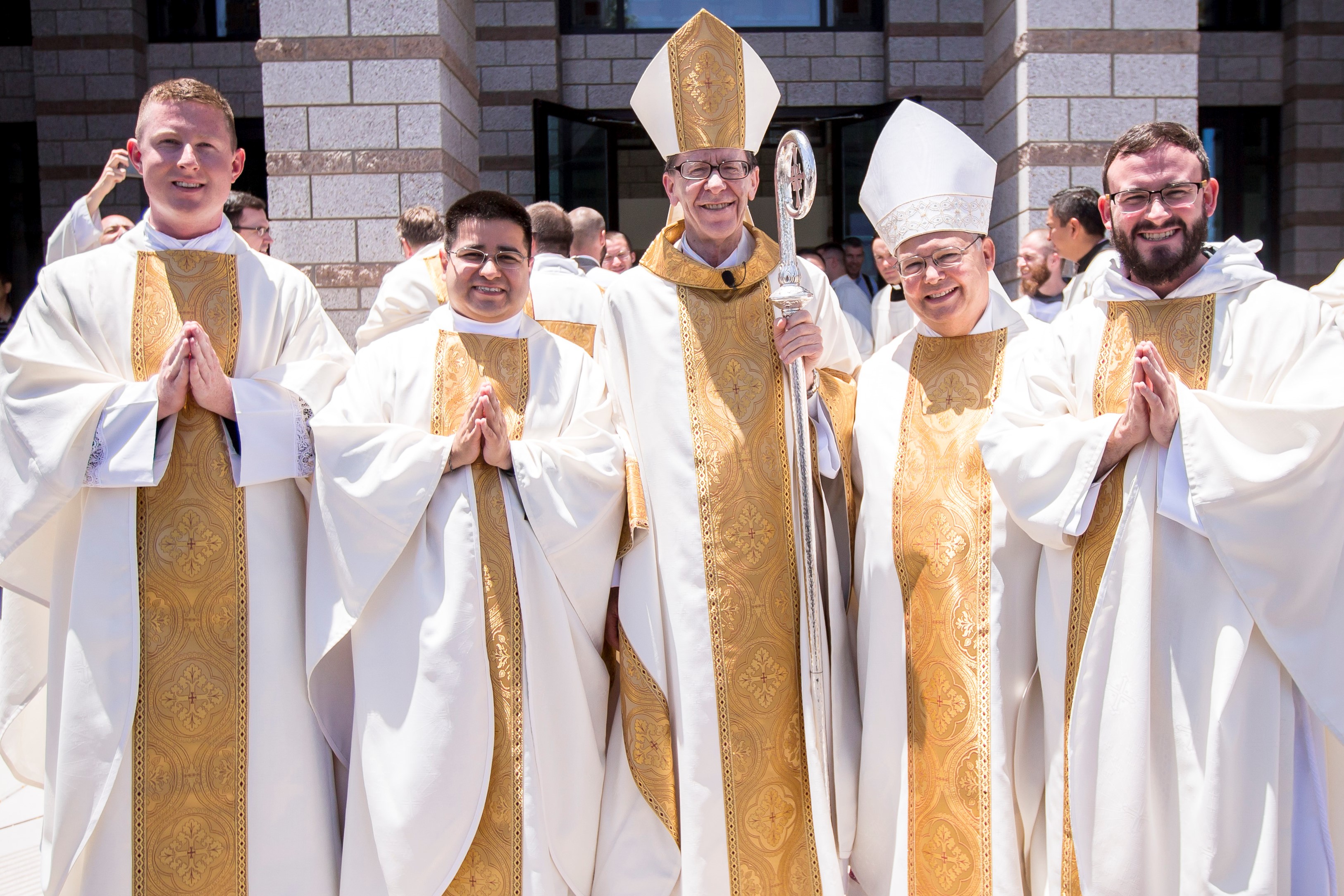Following is the prepared text from Bishop Thomas J. Olmsted’s additions to the homily required by the Instruction for the Ordination of a Priest.
June 3, 2017
In Matthew’s Gospel (Mt 9:35-36), we are told how Jesus looked at people: “At the sight of the crowds, Jesus’ heart was moved with pity for them, because they were troubled and abandoned like sheep without a shepherd.”
Jesus did not distance Himself from those who were troubled and abandoned. He did not look the other way or let His heart be numb and inattentive to their misery and distress. His stomach began to churn at the sight and sounds of the wounded in body or soul around Him; and then, He deliberately drew near and shared in their suffering. From personal experience, Jesus knew what it was like to “have no place to lay His head.” Jesus knew, in His heart, the crowd needed a shepherd just as children need a father and a mother to care for them.
Today, in AD 2017, those to whom Jesus is sending us priests include many children without a father.
My dear sons, by God’s grace and loving plan, from today forward, the people of God will call you “Father.” Let this new title remind you each day that the Lord Jesus is calling you to see with the eyes of your body and your soul the suffering of children, children of all ages but especially children wounded by a “no-faculty divorce society,” which offers perverse incentives to separate children from parents, usually from their fathers (See Taken into Custody by Stephen Baskerville).
Many fatherless children, motherless children too, suffer incognito because it’s not allowed to call the pain caused by no-fault divorce “real suffering.” Instead, they are told, “Be resilient;” “Don’t be selfish.”
Many women today suffer from “post abortion syndrome” but it’s not allowed either, not politically correct, to name this terrible pain that stalks the hearts of many of our sisters and daughters in Christ.
A father calls things by their proper name; he speaks the truth in love; and he looks with compassion upon every member of each broken family, ready to help each one to name, in truth, what is breaking their hearts and to find fresh hope and healing in Christ. A faithful priest combines compassion and truth in His fatherly love. He firmly believes the words of St. Paul (Rom 5:15ff): “Where sin abounds, grace abounds all the more.”
The Father of Lies, the Evil One, however, contends, “Sin does not abound. Don’t be such a pessimist.” My sons, do not let the deceptions of Satan go unchallenged. Until we see and name sin and the suffering it always causes, we cannot understand why it’s true “Where sin abounds, grace abounds all the more.” Because sin abounds, suffering abounds; and suffering become ever more oppressive until its cause is named.
Be generous, then, I urge you, in making yourself available to hear confessions. Until sin is confessed, the wounds of the soul and of the psyche continue to fester. But, as soon as we confess our sins, mercy liberates, grace brings healing, and joy springs up anew, not a joy devoid of suffering but found in union with suffering.’
An elderly priest in New York was asked, “What is your advice to newly ordained priests?” He replied, “Allow the Lord to break your heart.”
When Jesus looked upon the crowd who were like sheep without a shepherd, His heart was moved with compassion, like a father who had suffered the loss of his only son, or like Rachel who wept because her children were no more.
Leon Bloy said, “There are places that do not exist in our hearts until they are born into existence through suffering.”
Let us be willing to suffer and to lay down our lives for those whom God gives us to love. Let us tell the Great High Priest, “Lord Jesus, make my heart like yours.”





